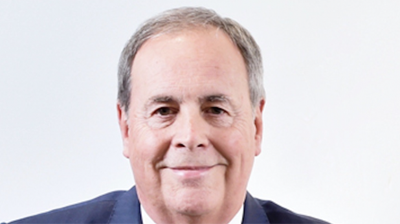
Some 64% of financial services businesses are conducting, or plan to conduct, conversations with landlords around reviewing office space requirements, according to a financial services survey from the Confederation of British Industry and PricewaterhouseCoopers.
This is a theme that resonates greatly with many financial services firms both here in the UK and abroad as the various lockdowns have forced organisations to rethink even basic processes.
However, while companies may be planning to have more staff work from home in future, around £500 billion could be cut from the UK economy over the next four years if workers fail to return to offices, says Douglas McWilliams, deputy chairman of the Centre for Economics and Business Research.
McWilliams added that a no-change scenario would see GDP creep back to last year's total of £2.21 trillion by 2025, assuming growth of 2% a year, though the figure could be as low as 1%.
Thankfully, this particular crisis could already be being averted as figures from the Office for National Statistics (ONS) show that the proportion of people working from home reached 20% at the end of August, compared with a high of 38% in mid-June.
The ONS revealed that the rate has been “steadily decreasing” over the last two months, and in just the past week the proportion of working adults who travelled to work reached 57% - the largest portion of the workforce since the lockdown began.
With these figures in mind, Asset Finance International (AFI) sat down with various experts in the asset and auto finance markets to discuss how working from home has impacted on the efficient running of the company:
- Paul Burgess, chief executive officer of Startline Motor Finance;
- Spencer Halil, director of Alphera Financial Services;
- Paul Jennings, managing director of JCB Finance;
- Mike Randall, chief executive officer of Simply;
- John Rees, global head of sales and marketing at Société Générale Equipment Finance.
A trend emerged that each company’s experiences with home working had been, on the whole, positive. For example, Startline Motor Finance are now writing record monthly business with everyone working from home and Simply and JCB Finance have had a home working model in place from the outset and staff therefore were well prepared when March came around.

Spencer Halil explained: “We were in a pretty favourable position because we already had the kit and culture in place to make working from home as effective as possible.
“Any financial institution has to have a business continuity plan and ours involves moving to a larger facility which has costs associated with it even if we weren’t using it much. However, working from home was such an effective transition for us that our business continuity plan may be adjusted to have home working as our first-choice. We didn’t need to inform staff about working hours or what we expected from them because our cultural transition had already taken care of that. However, we were focused on ensuring our people leadership groups were having proper mentoring and coaching conversations with their teams to ensure everyone was coping with the change and it wasn’t adding to their stress and anxiety.”

John Rees added: “In certain circumstances I think working from home can be more efficient than the more traditional office-based working methods. I’m based in central Paris, and I have a commute of about 45 minutes morning and evening so I lose an hour and half a day travel time. With home-based working, I don’t lose that. The other very apparent thing is the cost of office space in cities like London and Paris. If you make 50% of your staff home-based and rotate, you obviously only need 50% of the very expensive office space.
“Another positive is that all of those processes that have historically taken a long time to agree on are now accelerated. For example, in April and May we focused a lot on rescheduling and managed to put in place a rescheduling policy over the course of a week. In a non-crisis environment, that would have taken us six months. The struggle now is trying to hold on to that efficiency and not go back to countless committees and re-writes.”
Data protection and home working
As JCB Finance and Société Générale Equipment Finance are a bank subsidiary or a bank directly, they explained how they are required to apply stringent protocols from the bank. For example, JCB Finance is a subsidiary of the Royal Bank of Scotland and has regular training events, mystery shopping and a plethora of firewalls in place.
The main threats for each company included the usual – albeit more frequent - ransomware and phishing email attempts with the addition of unexpected data loss and human error.
Halil said: “There absolutely is. Our staff know that they’re not to retain any customer data on their actual laptops, and we’ve already got a software in all of our systems that prevents any mass-storage devices being connected to any of our computers. We have lots of very tightly controlled internal processes around the use of anything that might have sensitive or important business-critical data.”
To what extent do you think the experience of home working will lead to a business model change to your company?

Paul Burgess said: “Until a vaccine is found or the virus is removed as a risk by some other method, we will probably carry on using a largely home working-based structure. It looks to be the safest and most effective option in the short-medium term at least.”
Paul Jennings added: “Some famous high-street retail names are not set up well enough to cope with how commerce in general is changing. We’re already set up with multiple business channels; customers can deal with us via the dealers, our asset finance relationship managers, our direct sales team, or online. I think that’s the key.”
Halil also pointed out the biggest lesson that Alphera Financial Services had learned came as a result of the regulator applying tight deadlines upon the industry in terms of its response to customer needs. Similar to Société Générale’s experience with the lockdown, the company was forced to gather the subject matter experts together and empower them to make the decisions without the usual referral to committees or senior teams.
He explained: “This streamlined, delegated authority meant that we delivered a really good number of sensible improvements to our offering in order to cater for the deferrals.”
Rees said: “We probably will only have around 50% of the staff in the office. But they won’t be permanently home- or office-based, it will be on a rotating basis. I think we’ll need to call everybody together from time to time because otherwise you would lose the team spirit that is so important in managing a large team of people.”
What unintended issues are you experiencing as a result of the lockdown?
Jennings continued: “I think it was the lack of response that we got from HM Treasury on making changes to the regulated modifying agreement. A company’s two choices were to either go down the route of modifying the agreement and having it signed electronically – which is against the CCA – or to go with forbearance, where you have to write separately to the customer when you issue the Nosier, to explain that they need to ignore the Nosier. Whichever route you took you weren’t able to hit the prescribed requirements of the CCA. All of these points were put to the Treasury at the end of March and throughout April but the authorities were sadly not prepared to enact secondary legislation, which was even drafted for them. They chose not to do it.”
Video conferencing software such as Zoom and Skype helped to mitigate the negative effects of losing face-to-face meetings, leading Burgess to say that video conferencing has proven to be an effective, if not perfect, substitute.
Halil said: “Many of our colleagues needed some quite proactive interaction, because many of them were in their homes alone for extended periods of time dealing with some quite challenging conversations with customers. So, we started to increase the amount of all-team get-togethers that we had across departments. For example, every Friday my sales team have a virtual drink together at the end of the day.”
Can sales staff afford to see less of new customers? Can new business be conducted effectively via telephone calls or Zoom?
Mike Randall explained: “Business can be done very effectively over telephone calls and Zoom. We’ve been facilitating meetings and conducting virtual valuations via phone call and video call and have been able to successfully transact business without any type of physical interaction. The use of solutions such as eSignature, open banking and data aggregators - all a core part of our business - enables a customer to obtain a credit decision and the money, quickly.
“The pandemic has forced consumers online and has therefore actually helped our customers understand how these systems are designed to help them where before, they may have been uncertain about them. Clearly, we still love seeing our customers but pragmatically we have a model that satisfies both journeys.”
Halil said: “I’m a traditional-enough sales person to think that there will probably never be a scenario where we can be truly effective without a certain amount of face-to-face interactions but I think the pandemic has forced us to consider how effective a blended approach can be.”
Rees concluded: “Business development activity is the one that is most impacted by not being able to meet customers. To build a new manufacturer relationship and setup a program that’s going to operate in 10 countries, the confidence levels and trust comes down to people which comes largely from face-to-face contact. We were discussing this recently with a large potential vendor partner and they were keen to suspend the ongoing project during COVID as they didn’t believe it could be moved forward without having face-to-face meetings.”



